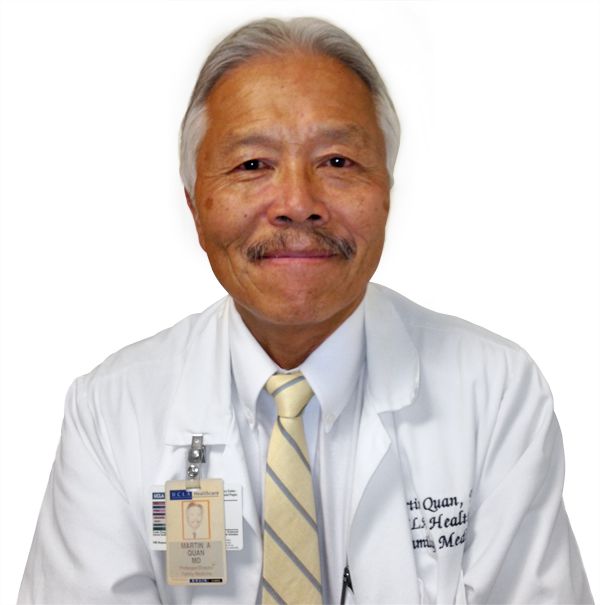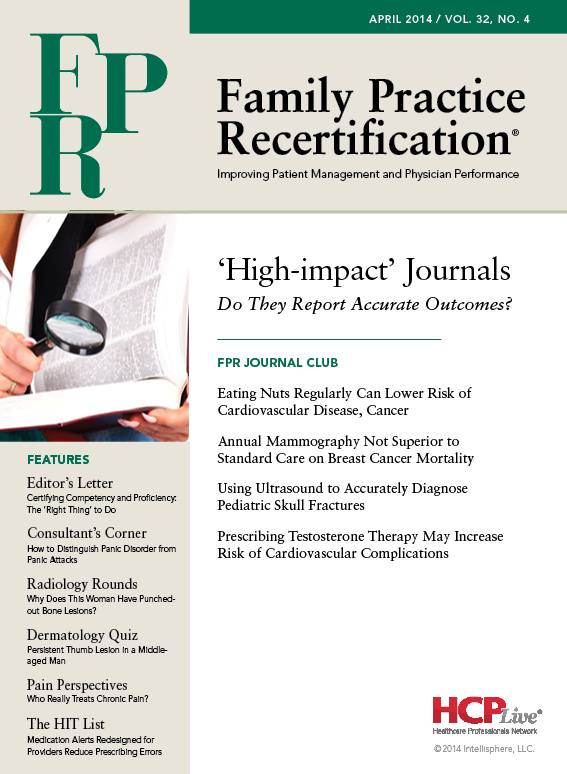Certifying Competency and Proficiency: The 'Right Thing' to Do
A fundamental principle of medical professionalism is meeting the public expectation of acting in the best interest of the patient and community. Put more simply, physicians are trusted to do the "right thing."

Marin Quan, MD
Editor-in-Chief
A fundamental principle of medical professionalism is meeting the public expectation of acting in the best interest of the patient and community. Put more simply, physicians are trusted to do the “right thing.”
For decades, the public accepted almost on blind faith that physicians would maintain and enhance the fund of medical knowledge and clinical skills required for them to provide high-quality care. However, public trust in physicians and the US healthcare system was shaken at the turn of the past century, following the release of a series of reports from the Institute of Medicine (IOM).
The first of these, which was issued in 1998, reported serious quality problems throughout American medicine and called for a major systematic effort to overhaul the system and improve healthcare quality and accountability. Following the release of a number of subsequent reports — including ones that were critical of the patient safety record and the failure to translate clinical knowledge into practice — the IOM concluded in 2003 that physicians were not adequately prepared to provide the highest quality and safest medical care possible, and that the system used for assessing ongoing proficiency was inadequate. In effect, the IOM issued a challenge to medical education and certifying organizations to develop systems designed to ensure that students and working medical professionals develop and maintain proficiency.
In response to this challenge, the Accreditation Council for Graduate Medical Education (ACGME) and the American Board of Medical Specialties (ABMS) collaborated and identified 6 general competencies for assessing physician performance during training and throughout their careers: 1) medical knowledge, 2) patient care, 3) interpersonal and communication skills, 4) professionalism, 5) practice-based learning and improvement, and 6) systems-based practice.
For its diplomates, the ABMS organized these 6 competencies into a 4-part professional framework now known as maintenance of certification (MOC): 1) professional standing, 2) lifelong learning and periodic self-assessment, 3) cognitive expertise as demonstrated by a secure examination, and 4) performance in practice. Each ABMS board was then given the charge of designing and instituting a MOC program that was continuous, included periodic cognitive examinations, and focused on clinical practice assessment and quality improvement.
The American Board of Family Medicine (ABFM) launched its MOC program (MC-FP) in 2003, and in response to ongoing, continuous feedback from stakeholders, revised and improved it to such degree that it officially launched version 2.0 in 2012. This rigorous recertification program, in which all ABFM diplomates are now enrolled, was developed with the expressed purpose to foster and facilitate clinical excellence. Additionally, it was meant to assure the public that their “certified family physicians have the necessary education, training, and experience to provide medical care to individual patients and their families,” as well as maintain excellence continuously throughout their years of practice. Although not entirely conclusive, a growing body of research exists to support that MOC is achieving its goal.
Although 75% of American physicians are board-certified, not all of them are participating in a MOC program. For ABMS diplomates who hold lifetime certificates, participation in MOC is voluntary, albeit strongly encouraged, under a so-called “grandfather” clause. A similar “clause” can be found for board-certified osteopathic physicians in the Osteopathic Continuous Certification (OCC) program, a MOC-like program developed by the American Osteopathic Association Bureau of Osteopathic Specialists (AOABOS) that officially launched in 2013.
Add the board-certified clinicians who opt out of MOC or OCC to the estimated 200,000 licensed American physicians who are not board-certified, and you still have a sizable portion of the US physician workforce not participating in programs designed to assure the public of their ongoing clinical competence and performance.
In 2010, the Federation of State Medical Boards (FSMB) took a major step towards filling this void with its adoption of the framework of a licensing requirement called Maintenance of Licensure (MOL). As a condition of license renewal, this process would require physicians to periodically provide evidence of participation in professional development and lifelong learning activities specific to their practice. As defined by the FSMB, it would include 3 critical elements: reflective self-assessment, assessment of knowledge and skills, and performance in practice. Although it remains to be determined when MOL will be fully launched, suffice it to say the FSMB has ongoing MOL pilot programs in 11 states and has put in place an implementation task force designed to help all state medical boards implement the MOL process between 2015 and 2020.
When MOL is implemented, all physicians who are not board-certified will be required to participate in the process in order to maintain their medical licenses. For board-certified physicians, the FSMB has already indicated that successful participation in either the ABMS MOC program or the AOABOS OCC program would satisfy MOL requirements. Certified physicians who are “grandfathered” would thus have the option of either voluntarily participating in MOC, OCC, or their state’s MOL program.
MOC, OCC, and MOL programs represent powerful tools developed by the medical profession to help physicians maintain competence, improve performance, and provide quality assurance to the public. Although MOL will undoubtedly be met with the same criticisms and rancor as MOC and OCC, I have little doubt that physicians will come to embrace them and support them, simply because it is the right thing to do.
Martin Quan, MD
Editor-in-Chief
Martin Quan, MD, is Professor of Clinical Family Medicine and Director of the Office of Continuing Medical Education at the David Geffen School of Medicine at UCLA. He is also a member of the Education Advisory Board and consultant to the Committee on Continued Professional Development of the California Academy of Family Physicians and a member of the Kidney Learning System Advisory Board of the National Kidney Foundation. In the past, Quan has served as Program Director of the UCLA Family Practice Residency Program, Co-Director of the UCLA Pre-Doctoral Program in Family Practice, Editor-in-Chief of Clinical Cornerstone, and Vice Chair of the Residency Review Committee in Family Practice for the Accreditation Council for Graduate Medical Education (ACGME).
